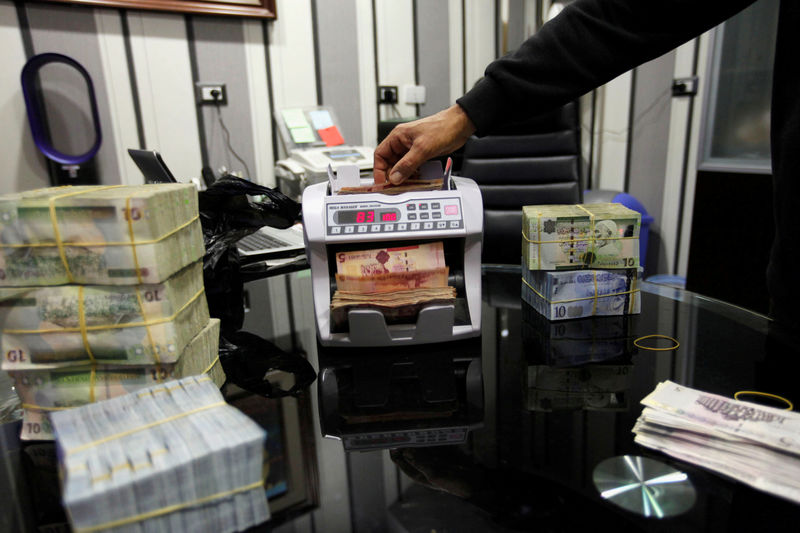TRIPOLI (Reuters) - - Libya's internationally recognized government on Wednesday imposed a fee of 183 percent on any hard currency transactions, effectively devaluing the Libyan dinar to bridge the gap to the dominating black market.
If implemented in a country in chaos where the central bank struggles to impose its will, the move devalues the official rate of the dinar to the dollar for such deals to around 3.9 from 1.4, Libya's Eqtisidiya business TV channel said.
Its impact was unclear. The black market rate stands at around 6, and the fee covers only part of the market. Family allowances will be excluded as well as possibly imports of fuel and other subsidized goods.
The gap has done much to distort Libya's oil-dependent economy, contributing to a liquidity crisis and causing corruption as armed groups with access to dollars at the official rate make huge profits through import scams.
The fee is supposed to be paid on commercial transactions but it remains unclear how it will be collected.
"The imposed fee will be 183 percent on sales of foreign currency based on daily publications of the rates of the Libyan dinar versus foreign currencies by the central bank," a government decree said.
Commercial banks which grant foreign currencies at the official rate on orders from the central bank are in practice controlled by armed groups which stand to lose if they pay the fee.
Last week, the U.N.-backed government in Tripoli announced a program of economic reforms to correct distortions in the economy, targeting the exchange rate and fuel subsidies. It did not give details then on the fee mentioned in the statement.
It had specified that the fee would be imposed on personal and commercial dealings -- that would most likely exclude imports of fuel and other heavily subsidized goods.
Travel allowances for Libyan families, which make with fuel imports the bulk of hard currency allocations, would be excluded, the government had said last week.
Smugglers, often linked to armed groups, make a huge profit by shipping petrol to Tunisia or Malta where the retail prices are much higher. Imported wheat gets smuggled to southern neighbors Chad and Niger.
Last week, the U.N.-backed government in Tripoli announced a program of economic reforms to correct distortions in the economy, targeting the exchange rate and fuel subsidies. It did not give details then on the fee mentioned in the statement.
The issue of reforms became more urgent late in August with the eruption of clashes between armed groups vying for access to public funds.
The U.N. brokered a ceasefire which has since been broken, and fighting was raging late on Tuesday in southern Tripoli.
Libya has been divided since 2014 by rival authorities in west and east amid widespread anarchy since the fall of Muammar Gaddafi in a NATO-backed uprising in 2011.
